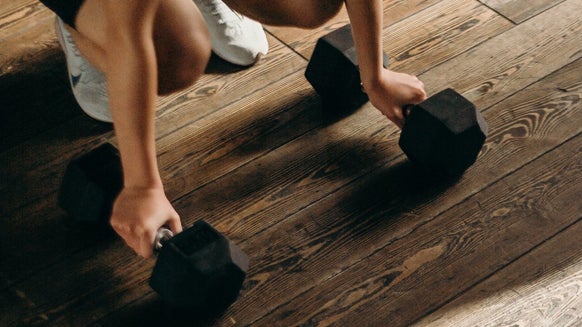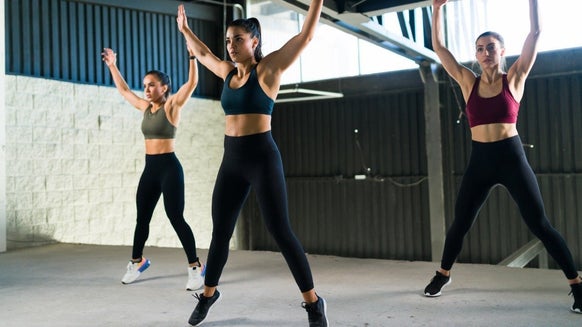
Looking to start your fitness journey but don't know where to begin? Don't worry, we've got you covered with our beginner's guide to working out.
For how long should I work out as a beginner?
As a beginner, it's important to take things slow and ease yourself into a routine. Start with around three 30-40-minute workouts per week.
Avoid overloading certain areas of your body, and make sure to take enough rest between sets. And don't forget to warm up before your workout and cool down afterwards — this will help your body prepare for the workout and recover faster.
What are the best workouts to do as a beginner?
When it comes to choosing the best workouts for you, consider your goals and fitness level. This will help determine the type of workout that's right for you, whether it's HIIT, weights, or cardio-based workouts.
Choose exercises that work out multiple muscle groups at once, such as squats, deadlifts, and rows. These large compound movements will make the most out of shorter sessions and help your whole body.
The best advice for getting started with working out
Here are our top 10 tips to get started:
1. Set goals and monitor your progress
First, record your starting point and set yourself SMART goals to track your progress. This will help keep you motivated and allow you to adjust your plan if needed. From progress photos to setting PBs, there are plenty of ways to track your progress, so find what works for you.
2. Start slowly and build gradually
A big mistake many people make is to go all in and then quickly burn out. Instead, take time to set foundations and gradually build on them.
3. Try smaller workouts
If you want to do longer sessions without tiring yourself out, try breaking up your workouts into smaller chunks throughout the day. For example, you could do a quick 20-minute HIIT circuit in the morning and then a class after work.
4. Be creative with your workout program
To keep things interesting, mix up your training. You could do some resistance training and stay mobile with some yoga or pilates. This will help keep you motivated, and also help prevent training plateaus.
5. Be flexible with your routine
Lastly, be flexible with your routine. Life happens, and sometimes you'll need to change your plans or workouts. Don't beat yourself up about it — just be flexible and know that it's OK to miss or move a workout if you need to.
6. Listen to your body
When you start trying new things, it's important to take it easy and listen to your body. Your body might need some time to adjust and feel comfortable. You want to push yourself to see results, but not so hard that you feel any pain or discomfort. Listen to your body to know when to push harder or when to take it down a notch.
You know your body best. If you need a rest or you can do a little more, trust yourself to know what you need to do.
7. Workout with a buddy
Starting a new gym or exercise program can be pretty scary, so why not bring a friend along with? Grab a family member, friend, or even a colleague to join in your workout. It can help you build your confidence, motivate and encourage you, and keep you accountable.
If you can’t find a friend who wants to work out with you, don't worry. You can always join a class or a class-based gym to meet like-minded folks and keep your workouts fun and engaging.
8. Build on your equipment
9. Meal prep properly
Eating right can be tough for lots of people. You need to make sure you're eating enough for your body and for your goals. Whether you're looking to lose weight, build muscle, or maintain a healthy weight, our guide to meal prep can help you set yourself up for success.
10. Find new ways to keep motivated
Motivation comes and goes, so it's important to have tools in your arsenal to help you push through the hard times. You can grab a friend to keep you accountable, put together a motivational playlist, listen to a podcast, or look back at all the little wins you've had to remind yourself why you started.
But don't just rely on motivation alone. Set yourself up with SMART goals that are realistic, achievable, and measurable. This way, when your motivation wanes, you can still stay on track and achieve anything you set your mind to.
Advice for working out at home
If you're not ready to join a gym, don't sweat it — you can always do some training at home. All you need to do is set aside a space, create clear goals, and maybe invite some friends over to join in. With the right program and equipment, you can easily hit your fitness targets in the comfort of your own home. Once you've built up your confidence, you can always add in gym workouts or try some classes.
Advice for working out at the gym
And if you're feeling a bit of "gymtimidation", don't worry. Even the pros had to start somewhere. We've got a seven-step guide to help you beat that gym anxiety and feel confident about your workout.
Try these tips to succeed at the gym:
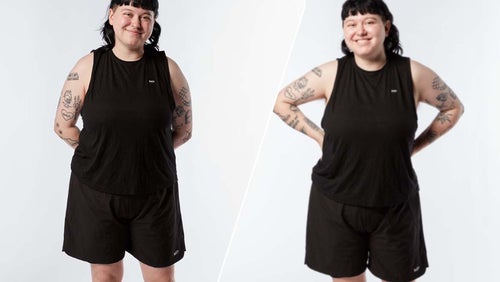
Overcoming Gymtimidation | 60-Day Transformation
Happier, stronger and more confident....
Take Home Message
Knowing how to start working out can be a lot, but the most important thing is to have a good, structured plan. This includes setting clear goals and finding someone to keep you accountable. With the right mindset and motivation, there's no need to be anxious or worried — just get moving and enjoy the journey.
Want more training advice?
CHECK THESE OUT:
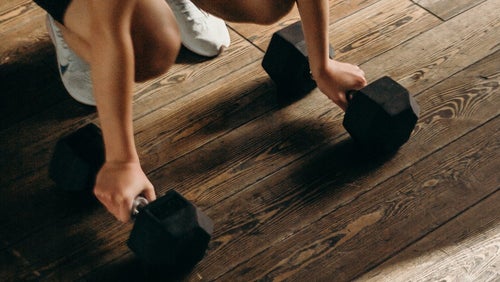
The Best Upper Chest Workouts With & Without Dumbbells
Effective chest exercises no matter what equipment you have....
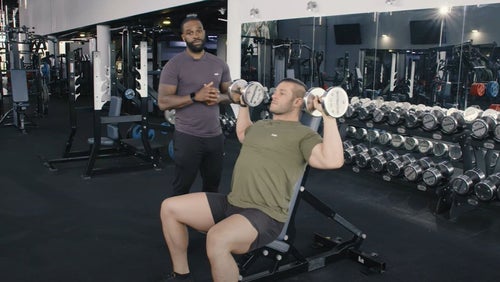
Five Best Shoulder Exercises To Build Size & Strength
Bigger shoulders in just five exercises....

A Beginner’s Guide to Boxing Training
Thinking of getting into boxing? This beginner’s guide has everything you need t...





